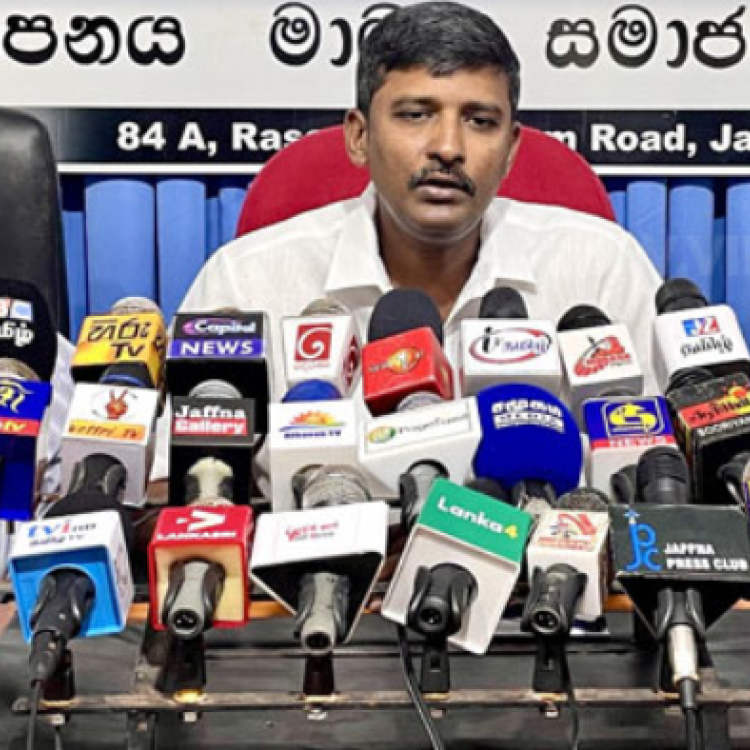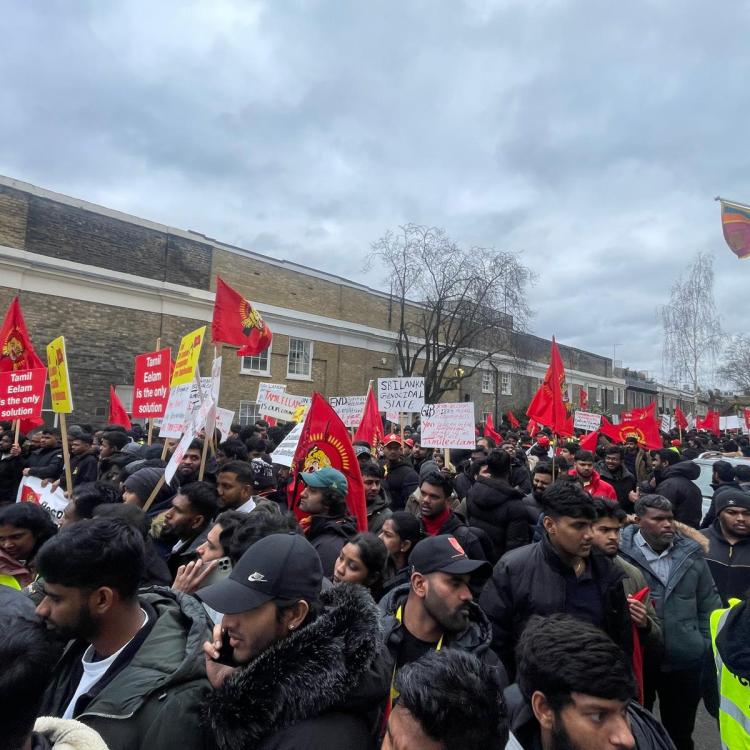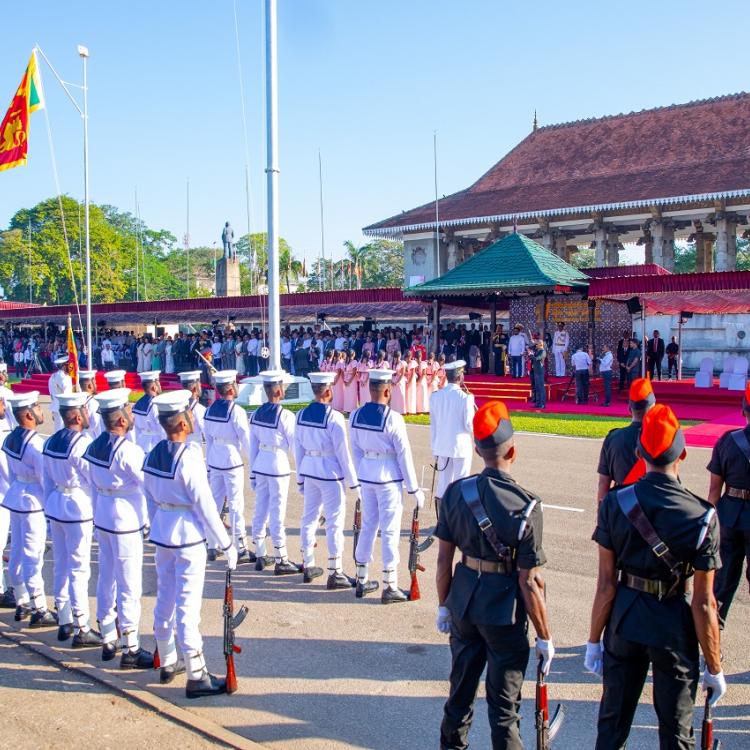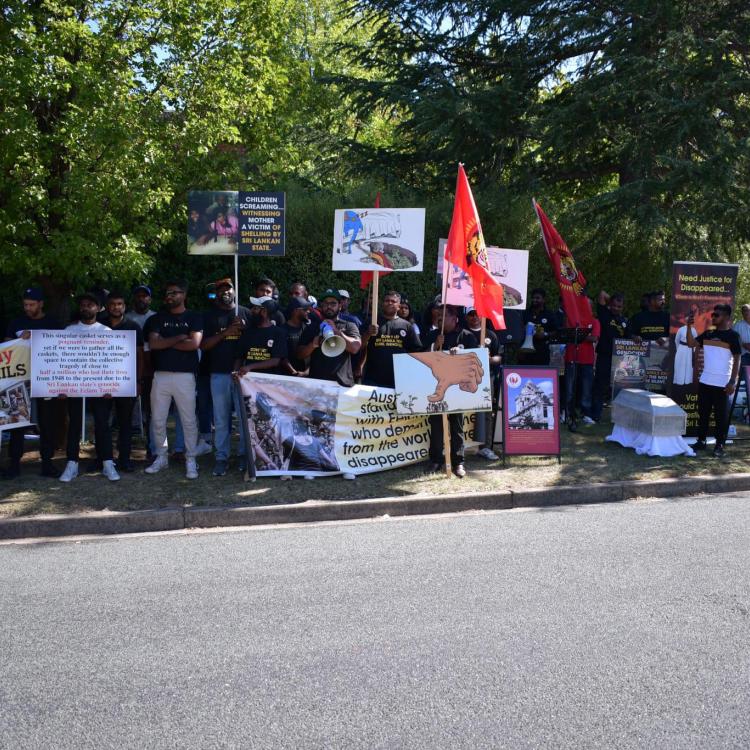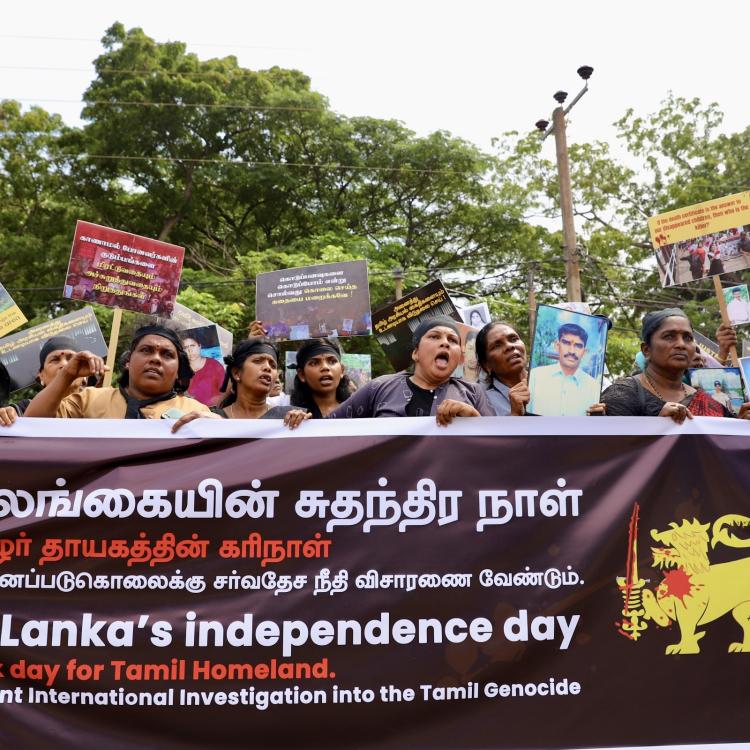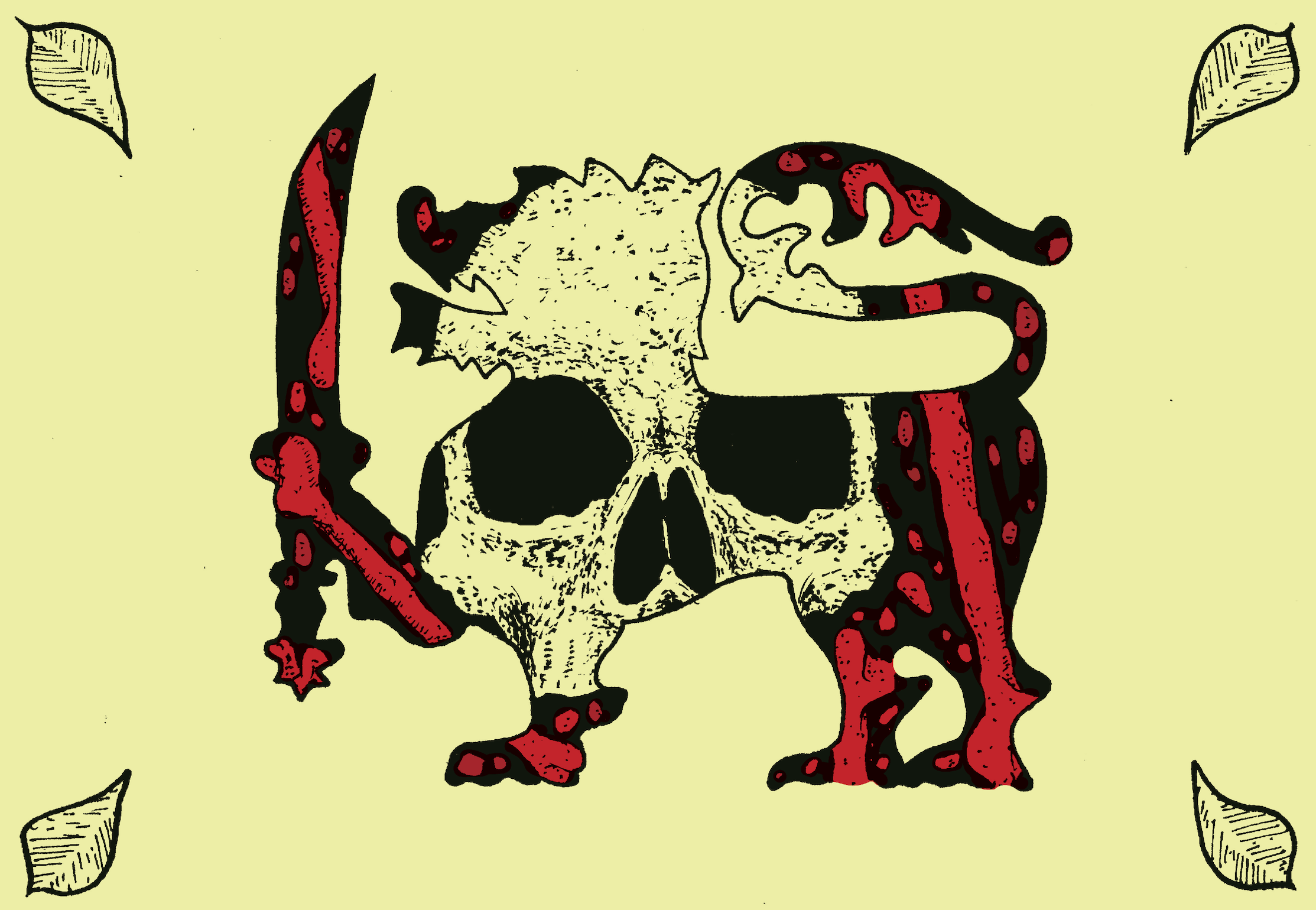
Illustration: Aravinthan Ganeshan
Familiar scenes played out across the island last week as Sri Lanka marked 77 years since the end of British rule. In the Sinhala south, lion flags were hoisted with pride and Colombo’s streets saw yet another military parade. But in the Tamil North-East, a starkly different picture was evident once more. Black flags were raised, protests were held, and the enduring sense of alienation that Tamils have long felt on this so-called "Independence Day" was once again laid bare.
For Eelam Tamils, February 4 is not a day of celebration. It is a reminder of decades of systemic oppression, mass atrocities and unrelenting military occupation. And though this year’s official celebrations in Colombo were scaled down in grandeur, they still carried the same militarism that has long characterised that repression. Military aircraft roared overhead, soldiers marched in formation, and a navy gun salute rang out. These were displays of power from an institution responsible for massacres that remain unpunished and an occupation that continues unchecked.
These are not issues that can simply be ignored. The mass graves that continue to be excavated and the relentless protests of the Tamil families of the disappeared are daily reminders of the horrific unaddressed crimes. Though 15 years have passed since the peak of the genocide, the need to finally tackle them is no less important. Indeed, given other current conflicts around the world, the crimes of Mullivaikkal are of global importance, and it will be an issue that will follow prime ministers and presidents as they travel to London, Delhi, Beijing and beyond.
The current Sri Lankan president Anura Kumara Dissanayake’s refusal to face them and his rejection of UN resolutions calling for justice cannot be overlooked. It exposes both the complicity and hypocrisy of the National People’s Power (NPP) regime. It preaches accountability, reform and equality for Tamils, yet has done little to actually address the demands of the people. The contradictions are glaring.
Indeed, whilst he cut down on the number of troops participating in the parade under the guise of fiscal responsibility, why then does Dissanayake continue to deploy the same military in massive numbers across the Tamil homeland? Why, when Sri Lanka continues to teeter on the brink financially, does the state still employ soldiers to hand out stationary in Tamil schools or sweep leaves from Tamil churches and temples? What purpose does this serve other than the continued assertion of Sinhala-Buddhist hegemony? Why is the occupation still there?
It seems as if Sri Lanka’s current president, whether by design or lack of will, is unable to challenge the deep-rooted Sinhala Buddhist militarisation of the state. Dissanayake is therefore either willingly complicit in its crimes, as every president before him, or he simply does not care to push back against the state’s political and military institutions. The Sri Lankan president himself even admitted last week how corrupt and “criminal” the military and the state can be. He spoke publically of how soldiers could commit murders and return to their barracks with impunity. None of this is new, but his apparent recognition of these facts has been matched with little action.
Whilst the president has focused much of his efforts on the Rajapaksa’s corruption, Tamil demands for accountability and demilitarisation have been forgotten or intentionally ignored. Dissanayake cannot afford to. Tamil grievances will not disappear simply because he chooses not to address them. The continued occupation of the North-East, the lack of accountability for genocide, and the denial of Tamil political aspirations remain sources of constant instability. They are challenges that international actors, including India, must also take into account as they deepen their economic ties with the island.
If the NPP truly seeks to govern differently, it must finally take concrete steps toward addressing Tamil demands. As young students in Jaffna showed this week, by pulling down a Sri Lankan flag and replacing it with a black one, even amongst the youth the Tamil struggle for freedom, equality and national liberation is not over.

